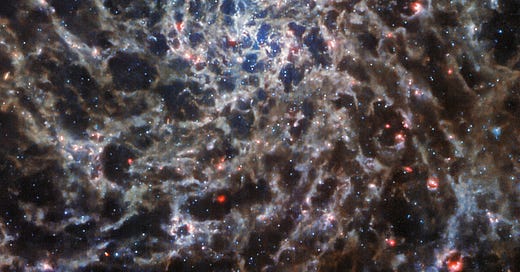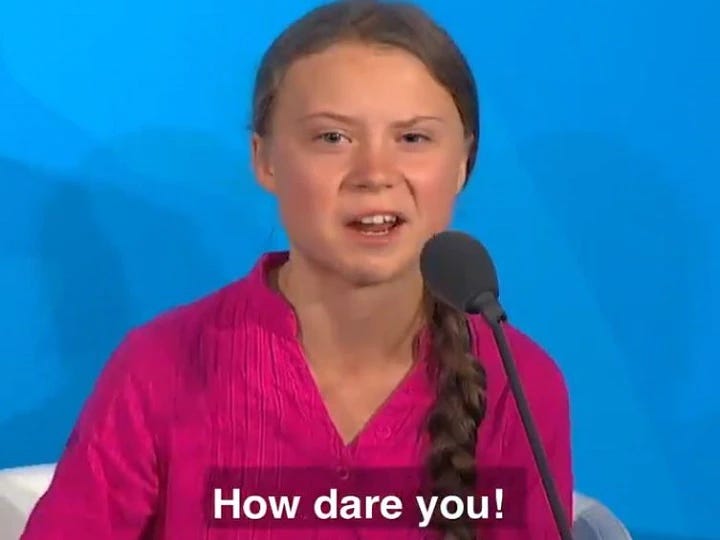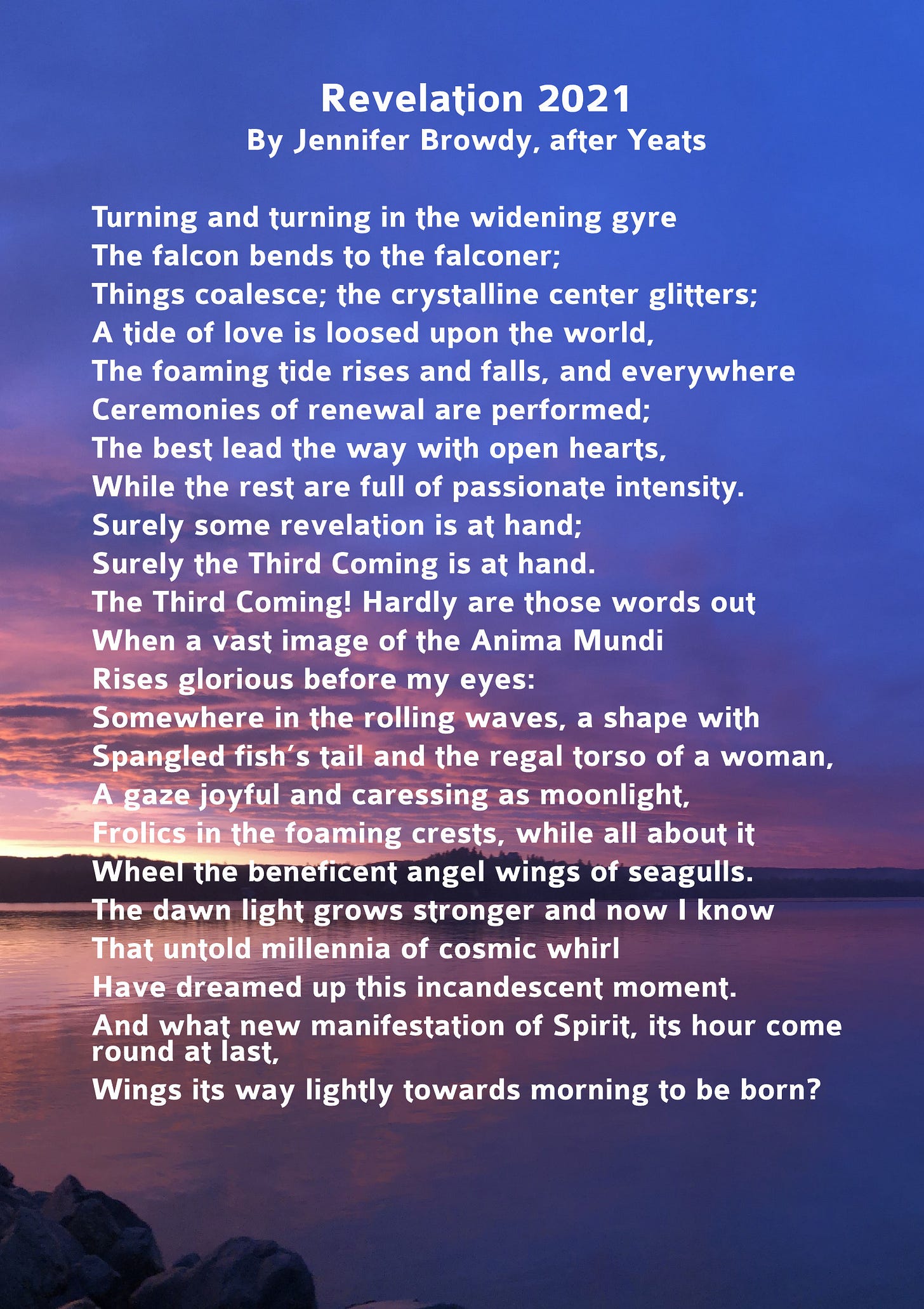Redefining "success" for the Gaiacene
What if we dared to reimagine “success” in terms of how well each of us could contribute to the vibrant flourishing of the Gaian system as whole?
For the vast length of human history on Earth, education for most people was a matter of life or death. Children had to be taught how to survive and thrive in their ecological and social niche, and adults depended on the labor of children, who were expected to begin pitching in and helping with whatever needed doing, as soon as they physically could.
In the past few hundred years, as human society has grown more complex, roles have become more specialized and the quality of both childhood and education has changed. These days, in most countries, children are expected to devote themselves to academic learning from about age 3 to at least age 18, and often into their 20s.
The goal of this long education is often quite abstract; for most of our school years we are not being prepared for a vocation, or for a particular role within our community, but simply told we must assimilate the required knowledge and pass the mandatory tests in order to “succeed.”
We are shown what success looks like in innumerable media representations and, if we come from “success,” in the lives our parents are leading. But the actual mechanics of Euramerican-style “success” are not made clear.
It's not made clear that the comfortable lives of the upper class, worldwide, rely on the exploitation and destructive extraction of the rest of the human and more-than-human world. Unspoken is the reality that if you want to be “successful,” you have to get with the program and acquiesce to its rules about privilege and suffering and who/what really matters.
Today I’m wondering, what if education were not geared towards “success” in modern capitalist terms, but rather towards the wellbeing and health of the entire Gaian system? How can we reimagine education so that it once again becomes a place where the success of the individual is embedded in the success of the entire social and ecological system of which she is a part?
I think it has to do with fractal thinking.
Despite the complexity of today’s world, overflowing with 8 billion human beings, we still instinctively organize ourselves into smaller groups, according to a wide variety of identity categories. In the 21st century, it’s imperative that we recognize that each of these small groups is coexistent with, and codependent on, every other group; that each group and each individual an essential and precious part of the greater whole.
We have recognized the fractal nature of the natural world—the way rivers look and act just like the veins and arteries in our bodies, for instance. We have recognized that our own microscopic interiors bear a striking fractal resemblance to the vast networks of the galaxies that we can now see across unimaginable vistas of time and space. And we have recognized that our seemingly individual human bodies are actually teeming colonies of “alien” microbial life, as well as smoothly functioning systems of highly specialized cells that are themselves composed of independent but collaborative particles.
Spiral galaxy; James Webb Space Telescope, 2022
To recognize these fractal relationships is to see that there is no real separation between an individual and her environment. Each individual body arises out of a common primal soup of elements, to which her body will be returned at death. The same is true for consciousness—we are individuals who are also always connected to the greater, soul-level consciousness of All That Is.
If we could bring this new fractal knowledge of systems to bear on our relationships, with each other and with all the other denizens of the big interdependent system we call Gaia—if we could achieve a shift to “unity consciousness,” not just in theory but in the way we live and interact with each other and the Earth, then so much of what is wrong with contemporary society would melt away.
Education could speed up the assimilation and distribution of this essential new/ancient way of understanding ourselves and our role in the world, if we could break out of our current holding pattern of repeating the same old lessons from the past.
Do we really want to continue to plod along with our backs bent over our old academic hoes as the Sixth Great Extinction rages, the climate spins out of control, and the conditions for human life become ever more unsustainable for the majority, while over in the gilded towers the administrators of the system continue to party as if it were 1970, ignoring what’s happening on Earth and its implications for the future?
If I’m exaggerating a bit here, pardon me—it’s my rage coming through.
Like Greta Thunberg, I want to scream at the men in suits who are running our planet over the cliff, “How dare you!”
How dare you continue to drill for oil and gas, burn down forests, pave over prairies, wrap everything in plastic and dump it all in the sea, torture domestic animals, trawl all the life out of the ocean and leave the nets to ensnare the remaining survivors…how dare you blithely turn up your air conditioners in your glass-walled skyscrapers and console yourselves with fantasies of escaping to Mars when you’ve rendered Earth entirely uninhabitable?
They do dare. But what if we social/spiritual ecologists dare too?
It is urgent that we become more daring in our own vision of how to transform our world from the bleak Anthropocene into the thriving Gaiacene.
For Gaian educators, it’s urgent that we begin to ask: What would a daring education look like?
This question gets to the heart of my inquiry in this blog. But before we can redesign education, we have to re-evaluate the goals of that whole long educational process.
We have to start by daring to redefine our understanding of social “success,” and how we achieve it.
I think back to societies where the success of leaders was measured by their generosity: where a truly successful leader was one whose abundance overflowed and touched every member of the group. Thus, there was no separation between the success of the individual and the success of the whole group.
In order to transform education to generously serve the interests of every individual human and the Gaian community as a whole, we would have to:
a) Make high-quality education a free basic egalitarian human right (no more tying quality of education to zip code, as it’s done in the US, no more allowing some universities to amass billions while others struggle to get by);
b) Redefine what we mean by “high-quality education,” thinking much more intentionally about the goals of those long years kids spend in school, and what “success” should and could look like on the other side.
So let me start with that. How should success be measured, in Gaian terms?
In the present-day Anthropocene, success looks like the accumulation of wealth by corporations and individuals. Unacknowledged is the truth that individual and corporate wealth is always dependent on the free resources generously provided by Gaia: sunlight, air, water, the ceaseless exertion of all the microbes, animals and insects who ensure that we humans are fed and that our wastes are composted.
As we’ve run up against the limits of Gaia’s capacity to sustain all 8 billion of us, we’ve begun to think about ways to engineer the system so that it will continue to give us the comfortable lifestyle we aspire to. Hence the huge rise in the prestige of engineering education and its affiliated fields, which are perceived as necessary to keep the current machine running smoothly.
The Anthropocenic administrators dare to imagine that they can engineer their way past Gaia’s limits, never mind the biodiversity loss and suffering of the rest of the human and more-than-human communities.
What if we Gaiacenic pioneers dared to reimagine our relationship to Gaia in non-mechanistic terms? What if we embraced our spiritual connection to our planetary home and the cosmos in which it whirls, and saw our success in terms of how well we could contribute to her vibrant flourishing?
What new and reimagined fields of education would be necessary, to transform the “rough beast” of the Anthropocene into a collaborative interdependent denizen of the Gaiacene?
I will make this potent question the starting point of my next post. For now, I would welcome your thoughts on any and all of these ideas.







This economy, grounded in oil, is based on a notion of scarcity. And because "we don't have enough", that leads to competition and violence. I don't believe we evolved as humans with this scarcity mindset; I feel we were based in abundance. I don't mean a cornucopia; I mean a deep understanding of what is "enough", and only taking what we need. If anyone in our tribe was hungry, we were all hungry, if anyone was full we were all full. It boggles my mind that we are born and need to be taken care of for a few decades; we get sick and need to be taken care of, we get old and need to be taken care of. So for a large % of our life, we depend upon others being generous with us and taking care of us. If I ponder what is real and true wealth, it is found in healthy relationships, healthy communities, and healthy Nature. I have been generous throughout my life, and I have found I have always had what I needed, not necessarily what I wanted. A focus, then, on what is true wealth does not include money, only a deep spiritual awareness and generosity of that Spirit inside, given to those around me. Creativity, arts, maintaining health and curiosity, supporting logic and critical thinking, this is what a healthy "education system" delivers. That used to be so much a part of the community's fabric that we didn't see it as a system. The transition will not be easy, but anything short of this radical redesign of our methods of passing our knowledge and codes to the next generation will fail, IMHO.
Another masterful and eloquent exploration. Coincidentally (or perhaps not), while meditation this morning I envisioned the "inner space" contained within each of us as a mirror of "outer space," with the individual being a portal between the two. Not exactly what you were getting at with the fractal idea, but perhaps there are some echoes between the two.